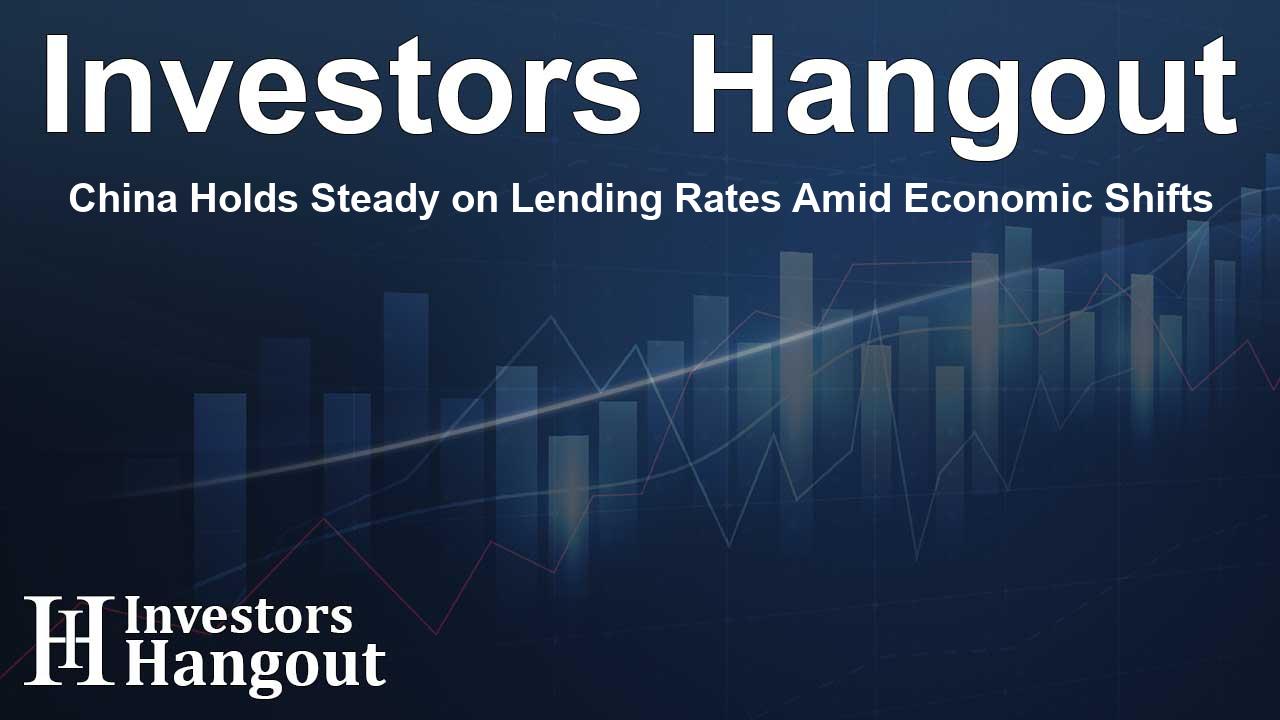China Holds Steady on Lending Rates Amid Economic Shifts

China Maintains Unchanged Lending Rates
In a surprising move, China has decided to keep its benchmark lending rates stable at the monthly fixing. This decision comes in the wake of the Federal Reserve's significant interest rate adjustments earlier this week, reflecting China's independent economic strategy.
The Current Rates Explained
The one-year loan prime rate (LPR) remains at 3.35%, while the five-year LPR holds steady at 3.85%. These rates play a crucial role in the Chinese financial system, influencing the cost of loans across various sectors.
Importance of LPR Rates
For many in China, the one-year LPR is particularly significant, as it impacts the interest rate on most new and outstanding loans. The five-year LPR, meanwhile, is pivotal for mortgage pricing, affecting many homeowners and potential buyers.
Market Expectations vs. Reality
Prior to this announcement, a Reuters survey conducted with 39 market participants revealed that 69% anticipated a reduction in both rates. This expectation stems from previous actions where China cut major interest rates in July, marking a substantial policy shift aimed at invigorating economic growth.
The Impact of Previous Rate Cuts
The cuts made in the previous month were China's first broad adjustment in nearly a year, indicating an intention to bolster economic performance amidst global uncertainties. The decision to maintain rates now, in contrast to the widespread expectations of cuts, highlights the complex landscape of China's monetary policy.
Future Economic Outlook
As we look ahead, the decision not to adjust rates suggests a cautious approach by Chinese policymakers. This strategy reflects a careful balancing act between fostering growth and managing potential inflationary pressures.
Policy Implications
Keeping rates constant may be a sign that authorities are assessing current economic indicators and prefer to observe the outcomes of previous rate changes before making further adjustments. The global economic climate, particularly the moves by major economies like the U.S., continues to influence China's financial decisions.
Conclusion
As China navigates its economic recovery, the stability of its lending benchmark rates may play a critical role in shaping future market conditions. Stakeholders will be keenly observing how these decisions impact both lending and broader economic trends moving forward.
Frequently Asked Questions
Why did China leave its lending rates unchanged?
China's decision to maintain its lending rates unchanged reflects its strategy to assess previous rate cuts and their impact on the economy.
What are the current benchmark lending rates in China?
The one-year LPR is at 3.35%, while the five-year LPR stands at 3.85%.
How do LPR rates affect loans in China?
The one-year LPR influences most new and outstanding loans, while the five-year rate affects mortgage pricing.
What was the market's expectation before the announcement?
A significant portion of market participants expected a reduction in both lending rates based on trends and previous cuts.
What does the future hold for China's economic policy?
The decision to maintain current rates indicates a cautious approach as China seeks to balance growth with inflationary pressures.
About Investors Hangout
Investors Hangout is a leading online stock forum for financial discussion and learning, offering a wide range of free tools and resources. It draws in traders of all levels, who exchange market knowledge, investigate trading tactics, and keep an eye on industry developments in real time. Featuring financial articles, stock message boards, quotes, charts, company profiles, and live news updates. Through cooperative learning and a wealth of informational resources, it helps users from novices creating their first portfolios to experts honing their techniques. Join Investors Hangout today: https://investorshangout.com/
Disclaimer: The content of this article is solely for general informational purposes only; it does not represent legal, financial, or investment advice. Investors Hangout does not offer financial advice; the author is not a licensed financial advisor. Consult a qualified advisor before making any financial or investment decisions based on this article. The author's interpretation of publicly available data shapes the opinions presented here; as a result, they should not be taken as advice to purchase, sell, or hold any securities mentioned or any other investments. The author does not guarantee the accuracy, completeness, or timeliness of any material, providing it "as is." Information and market conditions may change; past performance is not indicative of future outcomes. If any of the material offered here is inaccurate, please contact us for corrections.